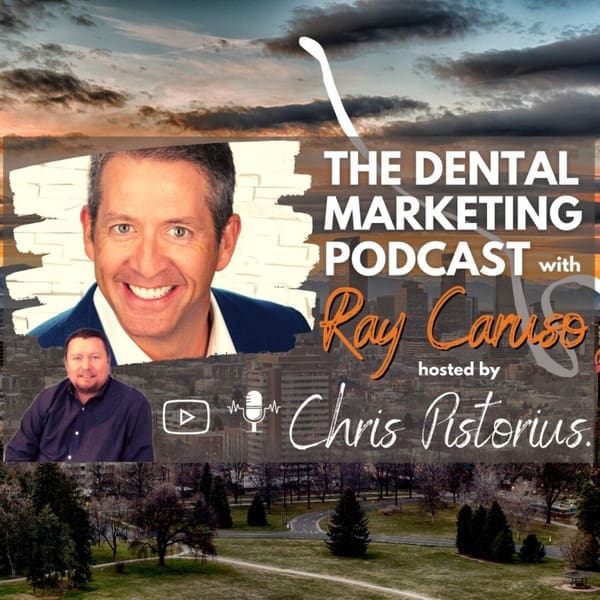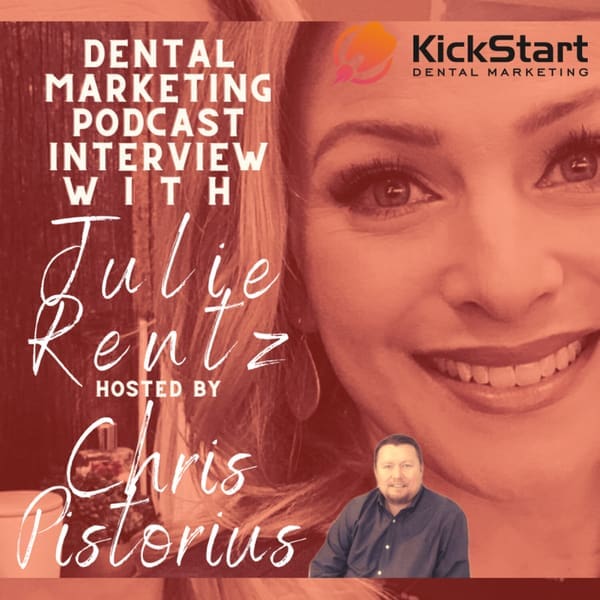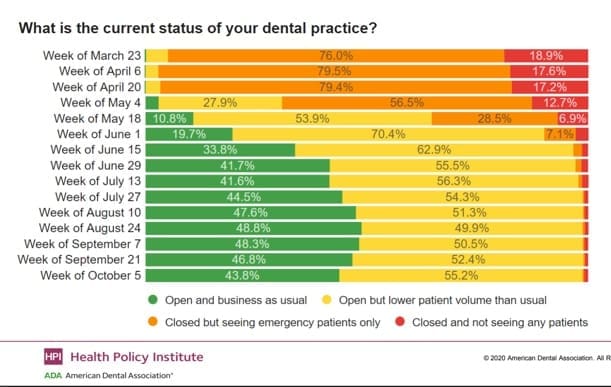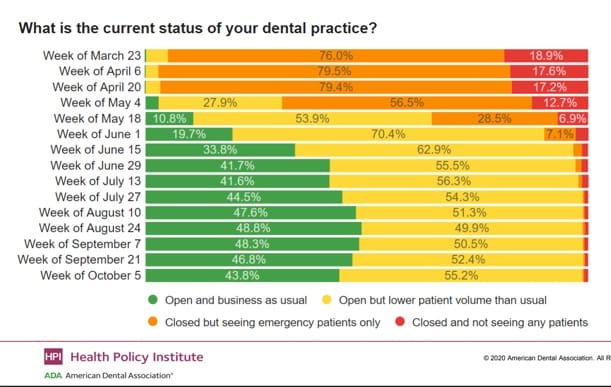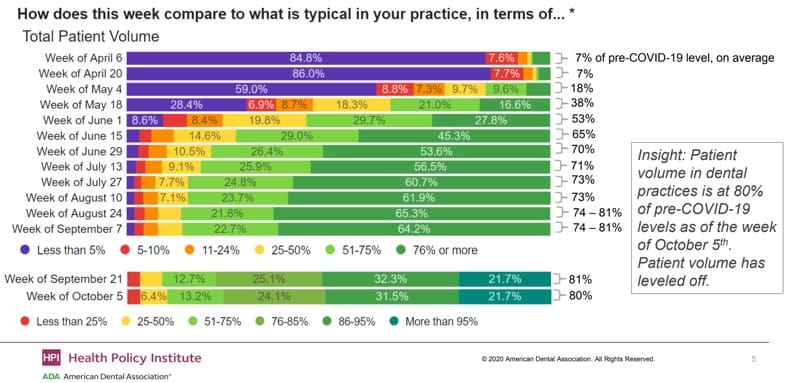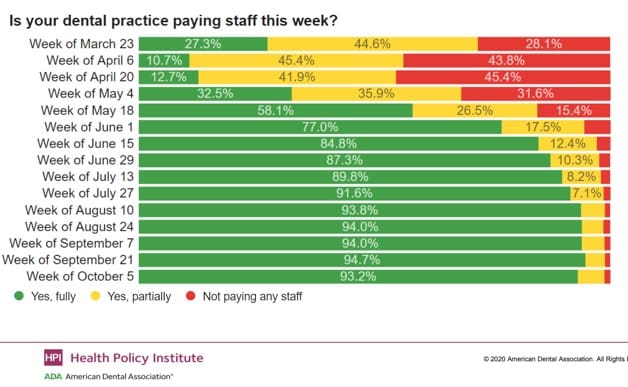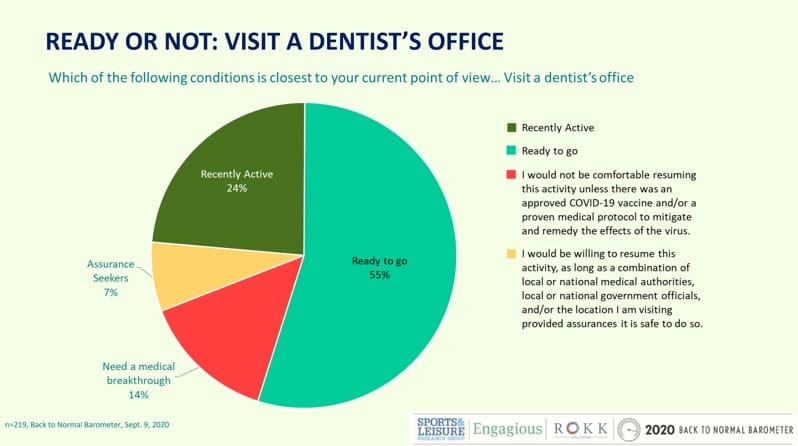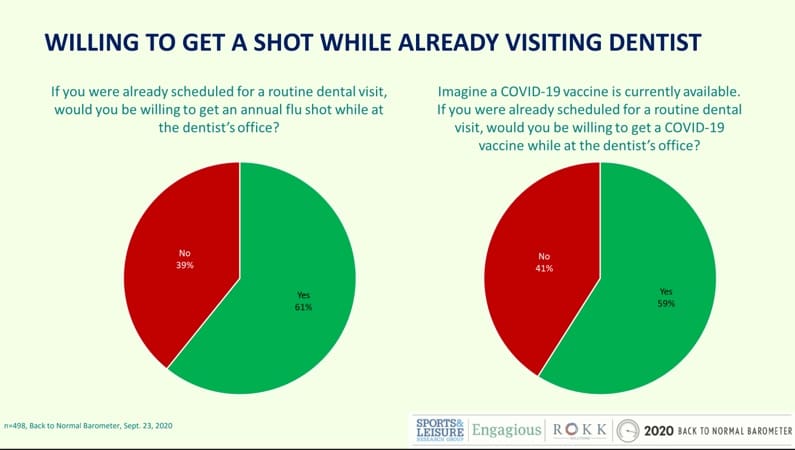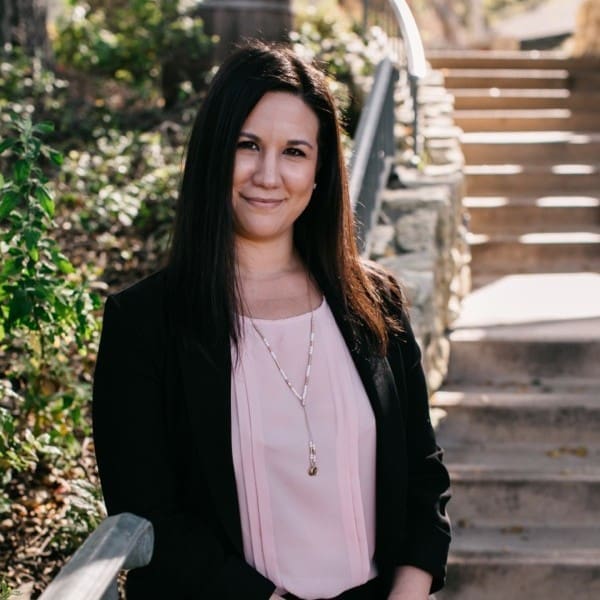
How Maintaining Relationships with Your Patients & Employees Impacts Your Dental Practice!
View Full Transcript
Chris Pistorius (00:03):
Hi everybody, this is Chris Pistorius again with the Dental Marketing Podcast. Today. I’ve got a special guest, Dr. Landon Blatter, who is the founder and CEO of Rocky Mountain Dental Partners in Colorado. They have two locations, actually, right now: Aspen Springs Dental, and Aurora Family Dentistry. Dr. Blatter, thanks so much for joining us. I know how busy you are.
Landon Blatter (00:29):
Thanks for having me, Chris. I really appreciate it.
Chris Pistorius (00:31):
Absolutely. So, Dr. Blatter’s actually been a client of ours for several years now, and we’ve seen… we’ve gone through different financial reconciles, if you will, in terms of the economy going up and down, and now COVID. And so we’ve experienced a lot together and we’ve actually grown our businesses at the same time. So, Dr. Blatter and his practices were actually one of our early clients, so several years now. So, we appreciate the ongoing support Dr. Blatter, and maybe you could just tell us a little bit about how you got started. I think you’ve owned them now for 15 years and still going strong. Maybe you could tell us a little bit about the history of the practices.
Landon Blatter (01:16):
Yeah, you bet. And I think it’s probably closer to seven, eight, maybe even nine years, Chris, it seems like-
Chris Pistorius (01:21):
Right.
Landon Blatter (01:21):
because we’ve been doing this a long time, so not just two or three.
Chris Pistorius (01:24):
Right? Yeah, no, no. Yeah. That’s what I meant. I’m sorry, I probably misspoke, but yeah, it’s been several years, for sure.
Landon Blatter (01:31):
I really appreciate the relationship and you’ve always done a great job for us. So, I started, Chris, 15 years ago out of dental school, graduated Harvard Dental School in 2004, and I always knew that I was not made to be somebody’s employee. But I decided to work for somebody at corporate dental office in Colorado Springs for just a year. Great experience, got some hand skills, and then I bought my first location in September of 2005. Then in 2007, I bought the second location, which happens to be the Aurora office. Then in 2009, 2010, I bought a couple other offices. Those two I’ve since sold because I found myself being stretched too thin. And we settled into two offices where I feel like that’s a really good… that stretches me and we’re growing those.
Landon Blatter (02:25):
And I just don’t feel like I’m too stretched too thin with just the two offices at this stage. And I’ve really enjoyed the fact of trying to build a group office and have multiple doctors. And that process has been outrageously stretching for me and stretching me beyond my existing sets of skills. But it’s fantastic to watch them grow.
Chris Pistorius (02:48):
Yeah.
Landon Blatter (02:49):
For instance, the Aspen Springs office, with much help from you is… we’ve grown probably four or five times since I started it 15 years ago.
Chris Pistorius (02:59):
Yeah.
Landon Blatter (02:59):
So it just takes time [crosstalk 00:03:01].
Chris Pistorius (03:01):
Yeah, it’s been remarkable to watch just from my side. We help you with marketing, but you’ve done so much to grow the both of those practices. And I can remember when we started, I mean, there were some pretty big gaps in the schedule, and we both had concerns about that like, “Geez, you know, is this the right market for him? Is this…?”
Chris Pistorius (03:21):
And then between some right marketing moves and just what you’ve done internally in your organization, it’s been incredible to watch that. So-
Landon Blatter (03:34):
You hit something there on the head. I mean, you’re right. I remember the days when you and I first started, where I had two or three columns going, and we had holes all over the place. Now I’ve got five columns and it’s almost totally booked. And so we’re looking at a new location, so it can happen. It does happen.
Chris Pistorius (03:53):
Yeah, absolutely. Absolutely. And you know, sometimes I think, especially the new guys coming out of school or maybe somebody that’s been an associate and looking to start their own practice, for me, I think some good advice is that you’ve got to have a business plan that gives you a little time to get going and get started, because I don’t see somebody opening a practice brand new, especially, and within 30 or 60 days, all of a sudden you’ve got 50 patients a month, right?
Chris Pistorius (04:21):
Maybe you could talk a little bit about that. What should expectations be when you start out, I guess?
Landon Blatter (04:28):
Man, it all depends on where you’re at, obviously. The demographics are super important as you know, Chris, but I would agree, most of us dentists, we are not going to make it overnight. And you’re not going to open your shingle, put up a shingle like we used to back in the day and have 20, 30, 40 new patients knocking on your door every month and be like, “I want to join. I want to come in,” right? Takes work. It takes a lot of effort. And I think that we just have to be persistent and have realistic expectations. If we start to think that overnight success happens all the time, we end up letting ourselves down.
Chris Pistorius (05:07):
Yeah.
Landon Blatter (05:07):
And early on, I was like that, Chris, I felt, “Man, why am I not growing faster? I’m only growing at like a 10% clip here every year.” But instead of looking at that and celebrating that progress of 10% growth and be like, “That’s awesome,” I was getting myself down. And then when I finally realized that, you can’t be looking at the negative of everything all the time. You have to look at how much work you put into this and how great 10% growth is. That’s way better than most of the dentists out there, right?
Chris Pistorius (05:40):
Yep.
Landon Blatter (05:41):
And so, always stay positive. We’ve got to look at at the negative stuff and then utilize that to grow, but celebrate that progress, celebrate the positive things that are happening just in life in general. What a great strategy to just sure that you’re celebrating the good things, right? Especially in COVID right?
Chris Pistorius (06:00):
Oh, yeah.
Landon Blatter (06:01):
We have so many things that are stressing us out.
Chris Pistorius (06:03):
Yeah, no, I think that’s great advice for any business owner, honestly, not even dentistry. I mean, especially with COVID, we had a situation where every client of ours, except for emergency, shut down over a matter of a couple of months and some a little longer depending on where you were. So it’s pretty easy, once you get into a situation like that, to start looking at some pretty negative stuff.
Landon Blatter (06:26):
Right. Amen.
Chris Pistorius (06:29):
If you could see the light at the end of the tunnel through something like that and stay optimistic, I think that can help you get through just about anything, so.
Landon Blatter (06:36):
You’ve got to have your mentors that have gone through that-
Chris Pistorius (06:39):
Yes.
Landon Blatter (06:40):
kind of stuff too, whether that’s in your profession or… one of the things I love to do is I love to look at athletes and look at what struggles they went through, right?
Chris Pistorius (06:47):
Yeah.
Landon Blatter (06:48):
And my son is in basketball, we just were looking at Michael Jordan. Didn’t make the varsity basketball team as a sophomore.
Chris Pistorius (06:55):
Right? That’s right.
Landon Blatter (06:55):
But he became the best ever, right?
Chris Pistorius (06:57):
Yep.
Landon Blatter (06:57):
And now you’ve got Tom Brady out there that’s going to his tenth super bowl.
Chris Pistorius (07:02):
Crazy.
Landon Blatter (07:03):
People have something special, and what can we learn from these people? We can implement that into our professions too, right?
Chris Pistorius (07:09):
No question, no question. Except I don’t think I have any guaranteed contracts worth $20 to $30 million, but hey, that’s… I guess that’s part of it, right?
Landon Blatter (07:18):
That’s your next contract, Chris.
Chris Pistorius (07:20):
Yes.
Landon Blatter (07:20):
That next dental office right around the corner.
Chris Pistorius (07:21):
That’ll be a big practice, won’t it? Well hey, tell me a little bit about… I know both practices are fairly similar in terms of what you’re trying to achieve, but there’s differences too. But who do you think is your ideal patient? Who do you really want? And who’s the person that you really want to see come through that front door, I guess?
Landon Blatter (07:43):
That is a great question. So what we’ve done in both offices, as we’ve started off as family dentistry and seeing kids, we’re gradually moving away from seeing younger kids. And if we can start to see kids when they’re 14, 15, that’s probably, that’s much more ideal for us. So 10 years ago, that’s what I focused on because everybody needs a dentist. But now with more specialized training from the Dawson Academy from-
Chris Pistorius (08:13):
Right.
Landon Blatter (08:14):
[crosstalk 00:08:14] and then also some dental implant classes, we’re trying to move much more towards reconstructive dentistry. And so we’re trying to really develop a niche where we can be the people that the dental office that people know about correcting people’s bites.
Chris Pistorius (08:32):
Yeah.
Landon Blatter (08:32):
There’s a lot of people that have uncomfortable bites and they just don’t know where to go. And so sometimes that would be dental implants, and other times it’s just correcting their bite via a few crowns and a bite adjustment.
Landon Blatter (08:45):
So we’ve kind of transitioned over the years. And I think every practice does that, but our ideal patient right now is somebody who’s going to probably be a baby boomer, 50, 60, 70 years old that are looking to restore their smile, restore a bite, maybe fix some headaches, maybe some TMJ issues is where we’re at right now.
Chris Pistorius (09:06):
Right. Awesome. What about… I know you and I have talked about this several times, but you know, maybe in a couple of sentences or paragraphs, whatever works, what do you think is your unique selling proposition? We know that dentistry is very competitive and we have corporate dentistry, private practice, everything in between. And there’s tons. I mean, you’re in two markets that are, especially Aurora, is very competitive. What separates you from the competition? Why should somebody come to one of your practices versus maybe 50 of the others?
Landon Blatter (09:37):
That is such a great question. And it’s honestly a hard question to answer, and it should be something that’s on every business owner’s mind and preparing for this, maybe really start to think more about that, Chris. Customer service, I believe, is something that we have to all really… and that relationship-based service for people. I know that when I go to my doctor, I want that to be relationship-based. And it’s hard to experience that and to know that that’s actually happening in a practice until they actually come in, right? They can give us a try and either like us or dislike us, but with the help, you know what you’ve given us for sure, one of the most strong things is we’ve got 300 plus 4.9 star reviews on Google. That kind of stuff really helps emphasize that we’re taking care of people, right?
Landon Blatter (10:34):
So I think that that sets us apart. We’re not just show up, “Hey, sign this piece of paper and we’ll get you back here in a few minutes,” we try to have our systems very well organized. And in those systems though, it’s relationship-based, and you’re going to get to know your hygienists, you’re going to get to know your doctor, even though you’ll see multiple doctors, and people are friendly. Everybody tries to do that the best that we can, and I do feel like that sets us apart. And we’re proving that with our reviews that you help us get.
Chris Pistorius (11:09):
Yeah.
Landon Blatter (11:11):
Starting off early on, I really used Harvard Dental School has a unique selling point and I still do that, but just not as much. But then educating our patients and not selling patients, we use the inter-oral camera so much where we get to show them their exact teeth. And then it doesn’t… then it’s like, “Hey, this is what we’re seeing. What do you think we should do about it?” It’s an educational process about what’s going on in their mouth. And I feel like that really sets us apart. Now, whether or not I get that portrayed online that… but once they come in, I think that’s what they feel. And that’s what what we’re trying to achieve when they come to our office.
Chris Pistorius (11:53):
Yeah. You know, it’s funny, you mention that because online advertising is awesome if you do it right. But you know, sometimes you’ve got so much to say, and it’s probably not just online advertising, but you’ve got so much to say and so much you want to say, that it’s like, I don’t know if you even remember this, but the old classified ads in the newspapers, you only get like three lines to say it. So as a marketer, I’m so frustrated because I’m like, “Man, he’s got an awesome practice, but how do I convey that in three lines?” Or whatever it is, you know, on a website or a… because people have short attention spans. They’re not going to read through an entire website. You’ve got six and a half seconds to really attract their attention. So how do you get all that content into such a small amount of space? And that’s the trick to it, I guess. Right?
Landon Blatter (12:37):
Yeah. So hard to [crosstalk 00:12:38].
Chris Pistorius (12:38):
Yeah, absolutely. Well, you talked about some of the technology things, and I know you guys are, you’re kind of loaded up with the latest in technology, but what do you see? Is there anything coming down the pike that you’re excited about or things that you want to get into in terms of, I mean, you talked a little bit about maybe getting into implants more and a little bit higher end cases, but what excites you in terms of technology that might be coming down the pike or services that you can offer?
Landon Blatter (13:04):
That’s a great question. What’s really exciting right now is the digital scanning and what we can do digitally. We’ve got an iTero scanner for Invisalign patients where instead of taking the big goopy impression, the iTero scanner is fantastic. In and out of there in 30 to 45 seconds per arch. Patients love that, they can see a digitized model workup right there immediately on the iTero scanner. That super excites me. The Cerec machine, where we are making same day crowns, and we just barely got two new ones of these, and this allows us to make zirconia crowns in-office. So we’ve been doing a lot of that. So both of those required digital scanning and digital technology that’s really fun. We’re working towards being able to do more of that digitized work with our hybrid dentures and making that less analog-based and less model-based, and that’s really exciting, too. So, great stuff in dentistry.
Chris Pistorius (14:06):
Yeah.
Landon Blatter (14:06):
I tell people all the time like, “Whoa, what happened to those days back in the day?” Can you imagine living in the day when the day you go to the dentist, you’re like, “Dude, my tooth hurts,” and all he has to offer is, “Here’s a bottle of Jim beam. I suggest you drink a lot. A lot of it, because this is going to hurt,” right? Now, we’ve got these tiny little needles. We’ve got topical anesthetic. You’re totally numb. And digital scannings, we don’t even have goopy impressions. How awesome is that, to live in a day and age for the patient and the dentist? Things fit the first time, almost every time.
Chris Pistorius (14:44):
Right. Yeah.
Landon Blatter (14:45):
That’s so cool. And I just get excited about that. [crosstalk 00:14:46]
Chris Pistorius (14:46):
Well, I’ll tell you a personal story. My whole family, obviously, goes to your practice and my son had to have a tooth removed. He’s only 11, but you had to have a tooth removed. And it was a baby tooth, so it wasn’t socked at really tight. But I kind of thought about that. I was like, “Man, when I was 11 years old and if I was told I had to get a tooth pulled, that’s a fair amount of fear,” and he didn’t have any. And I worried about that because this was his first real experience with doing anything, and he got home and he didn’t text me or anything. He just got home when I got home from work.
Chris Pistorius (15:20):
I said, “All right. So how did it go?” I was cringing a little bit, and he goes, “Oh yeah, I didn’t really feel anything. They put this stuff on my gum first, then they gave me two shots that I didn’t even feel. And it took like five minutes and I was out of there.” I was like, “Wow. You know, that wasn’t always the case when I was, you know, 30 years ago or whatever it was when I was at age. So it’s amazing in just a small amount of time, the change that’s gone on in dentistry, I think.
Landon Blatter (15:46):
It’s incredible. I mean, from that kind of stuff like you’re mentioning, that patient experience is so much better. And then what would we do with periodontal disease now and being able to save teeth with lasers and laser bacterial reduction, instead of all the other processes of just letting things get worse, we actually understand how it all works.
Chris Pistorius (16:05):
Right.
Landon Blatter (16:06):
Great time to save our teeth, great time to live, because when we’re 85 or 90, Chris, you and I are going to be sitting on our front porch and we’re going to be chewing watermelon seeds and with our own teeth, right? That is so awesome.
Chris Pistorius (16:18):
Right. Well, I hope so. I hope you’re right with that one, for sure. But, you know, they say, and I’m trying to embrace this with all of our clients, but they say that the biggest reasons that people don’t go to the dentist are because of time, fear, and money. And so when we construct marketing campaigns, we’re like, “All right, we probably should talk about at least those three things very quickly in our advertising conversations, right?” So, time… what is it, extra hours you work longer? Whatever it might be. Fear, I think fear and money, I think… especially fear.
Chris Pistorius (16:54):
I think video can do a lot, just having video from the dentist himself, like you’ve done several of these just to make people feel more comfortable and talk about the advances that have happened in dentistry. And you know, it’s not like it was 30, 40 years ago. And then, money. I think every practice is different. You know your fee for service practices, you have your practices that take all kinds of insurance, and then you have folks that do kind of in the between or they have their own in-house plans. But would you agree that those are important things to talk about, as a dentist, not just with online marketing, but with anything you do?
Landon Blatter (17:30):
Oh, for sure. If you can solve what people’s concerns are, you’re going to be successful. And if you solve their time problem, that’ll make you partly more successful. You solve their fear problem, you’re going to be more successful. And you solve the money thing by helping it be affordable and accepting their insurance, or however you want to do that. All of those things it’s about solving the problem that the patient has. And when we can do that, our practices will be successful, right?
Chris Pistorius (18:00):
Yeah. And I think that’s a great point. You’re really… what you’re selling are solutions to problems, not necessarily dentistry stuff, right?
Landon Blatter (18:09):
Absolutely.
Chris Pistorius (18:09):
And I think when you can convey that message in your marketing and just anything that you do even in in-house, I think that goes a long way with resonating with people that are looking to have procedures done. So I think that’s great advice.
Landon Blatter (18:25):
And you solve their problems, but then you leave them with a good feeling when they leave the office.
Chris Pistorius (18:29):
Right.
Landon Blatter (18:30):
And if they can leave with that feeling, because it’s the feeling that helps them come back, it’s the feeling that, “I trust you. I was comfortable there. I really enjoyed the conversation. I didn’t feel pushed.” You know, all these feelings are so important to people, especially when we work in an occupation, that fear drives them. People are nervous. About 80% are nervous about the dentist, right? So if they can leave with a good feeling, man, it is success.
Chris Pistorius (18:57):
Well, and it opens up your channels for them to tell their friends and family how great it was too, right? Which is a huge part of operating in a successful dental practices, that word of mouth referral type marketing, so.
Landon Blatter (19:11):
Yeah.
Chris Pistorius (19:12):
Okay. Well, cool. So just circling back a little bit, because I know we’re going to have a lot of people watching or listening to this that are probably a little bit on the fence right now. “All right, I’ve got one practice, built it up, going great. Should I make that jump? And should I really go buy another one or two or three? What does that look like?” And I think we can leverage a lot of your experience with this, but what advice would you give to somebody that’s looking at the books right now and maybe thinking about making that move?
Landon Blatter (19:45):
That’s a loaded question, Chris.
Chris Pistorius (19:47):
Yeah, yeah.
Landon Blatter (19:48):
I’ll tell you, it’s a lot harder than you think it is, right? So many times we feel like, “Well, if we have one thing that’s successful, then I can do four.” Well, why did I go to four and then drop back down to two?
Chris Pistorius (20:01):
Right.
Landon Blatter (20:02):
I did it because, I dropped back down because, I realized, “I can’t do this right now.” My skillset wouldn’t allow me to do that. And so, my recommendation is that if you’re thinking about doing it, make sure that the worst case scenario of running this thing, if three people quit on the same day, that you have systems in place to take care of that, then this can be way less stressful. But if you don’t have… if we don’t have systems in place to take care of that, to work through problems like that, man, it just becomes… your problems, honestly, instead of are doubled by adding one extra office, sometimes it feels like they’re tripled or quadrupled.
Landon Blatter (20:39):
And so my recommendation is to go into this with your eyes wide open, knowing what problems you have in your own office. And just really honestly assess inside yourself and say, “Would I be better off to spend more time in this one office and make it more productive, or is two really going to bring that profitability that we’re looking for?” And four was too much for me, the profitability of that wasn’t working. So I’m like, “I got to drop it back down to something that I can maintain.” So really assess if you can handle those worst days and if you can, then, and you got some systems in place, then I think it’s great. But if you feel like that’s not your skillset, maybe one and just grow that one is better.
Chris Pistorius (21:26):
Yeah. How do you learn that the hard way? Well, and I think everybody will do that somewhat, but it seems to me like where you’ve kind of made a difference to me anyway, is that as you’ve grown, you’ve been smart enough to know that you can’t do it by yourself. You can’t be in two locations at the same time, and trying to book yourself in two locations or even three or four is crazy, right? And you’ve done a really good job, I think, of finding good doctors to come in and help you do this. I mean, Dr. Ricks has been with you forever, but you’ve grown beyond him as well. What’s what advice do you give to people looking to bring in associates or other doctors in whatever capacity?
Landon Blatter (22:15):
Man, that’s a really good question. You got to have, firstly, you got to have people that see dentistry the same as you do. You have to have the same treatment philosophy. If that treatment philosophy differs too much, it probably will never work. It’ll just create longterm animosity. But the second thing is win-win situations for both people involved and knowing what the doctor’s looking for and then somehow creating a situation that’s a win for both of you, you know, Stephen Covey at the finest, right?
Landon Blatter (22:46):
I mean, you got win-loser relationships, you got lose-lose, and then you got win-win. If we can win-win everybody… even if maybe, for instance, one of the doctors is making a little less than he was before, but it’s a win-win situation and it takes away the time that, say, for instance, I have to be at the office, well, that’s a win, right? And I know patients are going to be taken care of. Dr. Elvish gets in or Dr. Ricks gets into a great office. And so looking to win on both sides and not trying to be… like trying to make him make it on one situation and just know that, hey, if everybody’s going to win, it’s going to be a good long-term relationship and that’s better in the long run.
Chris Pistorius (23:33):
Right, right. I think that’s great advice. And I know that… I think you’re still involved, but you may not be in directly in charge of day to day operations in terms of hiring and firing things like that, but we’re seeing a big trend right now with our clients and just in the industry of front desk, staff assistance, things like that, of having high amounts of turnover. And it almost feels like to some people that they hire somebody and then a few months later they have to hire again, retrain and it’s like they’re never getting ahead. Do you have any tips or expert’s advice on how to hire and find good quality people that’ll stay loyal?
Landon Blatter (24:13):
That is so important and so hard to do. I think we all struggle with that, I do too. But some of the things that I’ve learned over time is you got to, again, it’s back to relationships. This has to be a relationship between you and your assistant and knowing that assistant, for instance, and what her career goals are. And so if you can know their career goals and then develop a path for her or him to achieve that goal, and this goes for every employee in our offices, if we know what their goals are, we can help them achieve that. And if they know that we’re trying to help them achieve that, and have a plan, man, I would stick around, right? And a lot more, I’d stick through a lot harder times than maybe if I didn’t have that, if I were the employee, right?
Landon Blatter (25:00):
So that’s one thing is, know them individually, have that relationship, and try to achieve some sort of a career path for them and where they want to go. Secondly, we just hired somebody at the front desk in the Centennial office, and she was a patient. And she was a patient that wanted to make a career change, and my front desk team leader, which are you talking about allowing other people to do stuff, she nurtured this relationship and now she’s been with us for six months and she’s just a really great employee now and team member. And so don’t… sometimes we look too much into, “Hey, do they have the skillset to do something?” And we missed the idea that, man, that personality, I need that personality.
Chris Pistorius (25:50):
Yeah.
Landon Blatter (25:50):
I need that to be the greeter of my office because they sparkle, they shine, right? And we can train a lot of things, but we can’t train being nice. You’re either nice or you’re not nice, Right? So look for these, whatever that important characteristic is, that you want in that position, look for it in all areas. And then we can train some other stuff.
Chris Pistorius (26:12):
Yeah. That’s a great point, and I’m hearing more and more of that of, we almost don’t want to hire people… I mean, assistants are a little different, but front desk people, things like that, that have a lot of dental experience because sometimes… and it’s every industry, not just dental. But when you hire somebody in my business, for instance, if I hire somebody that knows how to do SEO, well, we’ve got a special way that we do SEO, that’s a little bit different, but if they’re set in their ways and they’re not coachable, if you will, it’s not going to be a good fit, right? So I’m hearing a lot of people bring in people that don’t necessarily have tons of dental experience in an office, but they’ve got the perfect personality for it. And the practice is like, “You know what? We can train the dental stuff and the front office stuff,” but you can’t train, as you said, the personality stuff. So I think that’s great advice, so.
Landon Blatter (27:06):
I’ve got another example that was the same timeframe. My assistant, she graduated assisting school. She’s in high school still and she’s finishing up, but she’s got that personality, right? So we hired her and she did an internship for us during her school. So that’s another way to find people is, have them come in for an internship, make that relationship with one of the assisting schools or the hygiene schools, and then say, “Hey, send me your best. I want to to see what you… the best one you have.” And that’s how we found her. And I’m telling you, Chris, she… some people that have been in there in the career for 20 years would never be able to learn a new skill like scanning instead of taking impressions, right? She has jumped in and because of her proactive personality, she is now scanning, designing crowns, and is working towards now being a dentist, right?
Landon Blatter (28:00):
All within a six month period of time, because one, we trusted her, and like, “You’ve got what it takes,” and we showed that confidence in her and she jumped on the opportunity, right?
Chris Pistorius (28:11):
Wow.
Landon Blatter (28:11):
And she’s 17, right? And she’s so good at what she does. And you can’t let other people tell you that this is how you got to hire. You got to go with that intuition sometimes and do something outside the box and say, “That’s what I want. That person is going to grow here at our office,” right?
Chris Pistorius (28:33):
That’s a great story. That’s incredible. I didn’t even think about the… yeah, why wouldn’t you partner up with schools and institutes that… I’m sure they love to help place their graduates and… that’s a great idea. Awesome.
Landon Blatter (28:48):
Yeah.
Chris Pistorius (28:48):
Okay. Well, we’re going to wrap this up in just a second, but you know, it’s been a crazy year of COVID, and so it’s kind of weird to think about this question, but where do you see Rocky Mountain Dental Partners in five years? I mean, what, are you looking…? What’s your plan?
Landon Blatter (29:04):
That’s such a great question. I’m growing. COVID be darned, we’re going to grow, right? And it’s all about focusing on what you want. And I… so in the Centennial location, we’ve got five chairs, and we’re going to take that to 10 or 12, maybe a 15 chair office. We’re going to buy a new location, get a better spot, hopefully with more visibility. And that’s our goal. In Aurora, we just went from four chairs to eight chairs, so we already took that leap. I’m telling you, Chris, it was right during COVID. I signed that lease on February 15th, one month prior to us being shut down. You want to talk about being scared? I mean, so many people that are listening to this are probably in a situation just like it, but it will pay off. We made it through. If we can make it through COVID right after signing this extra lease, we can make it, right? We’ll make it through anything.
Chris Pistorius (29:58):
Right, yeah.
Landon Blatter (29:58):
So, we’re going to grow. I’m going to try to grow 10%. We’re going to add some more chairs. We’re going to add more doctors. So, that’s where we’re going. And-
Chris Pistorius (30:06):
That’s great.
Landon Blatter (30:07):
it’s fun to think about growth. I just… it’s not fun to think about being stable. It’s fun to I think about growth, right?
Chris Pistorius (30:14):
Yeah. What do they say? What’s the old business statement? If you’re not growing, you’re dying?
Landon Blatter (30:17):
Yeah.
Chris Pistorius (30:17):
Something like that?
Landon Blatter (30:17):
Yeah, that’s right.
Chris Pistorius (30:19):
I agree. Well, Dr. Blatter, I can’t thank you enough, I know how busy you are. I appreciate your time, and if it’s all right, maybe in a few months, we can revisit things and see how you’re doing, and just check in on your progress.
Landon Blatter (30:32):
I would love it. That’d be great. Let’s do it.
Chris Pistorius (30:34):
Awesome. Well, thanks again. And thanks for everybody tuning in. This has been a great interview and please be sure to join us for our next episode. Thanks.

